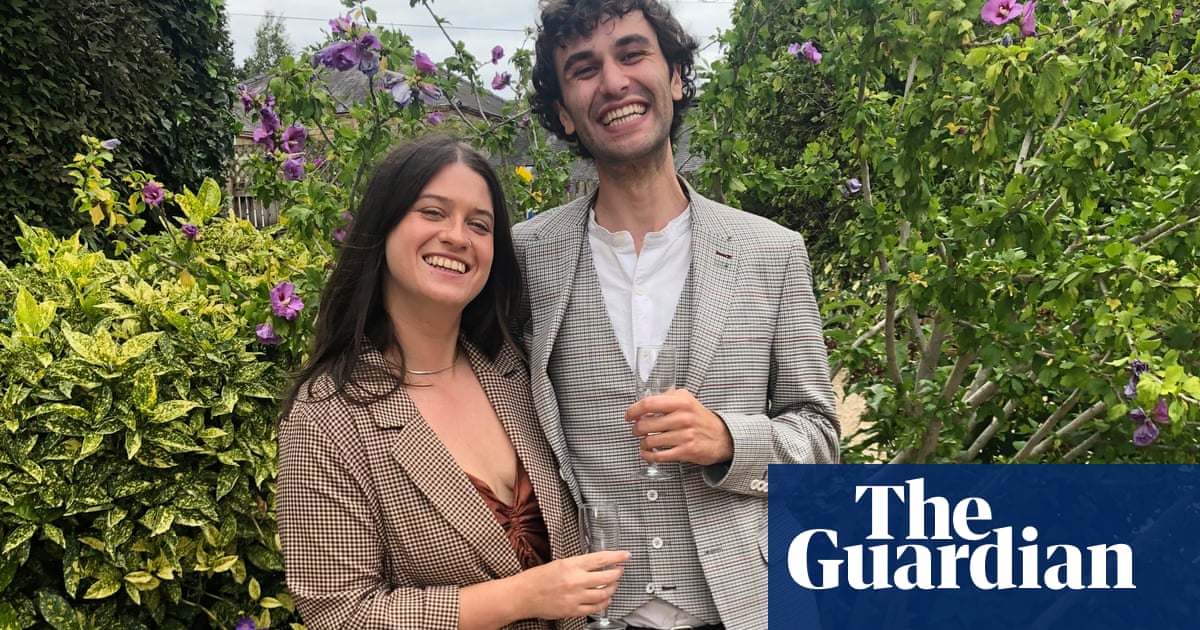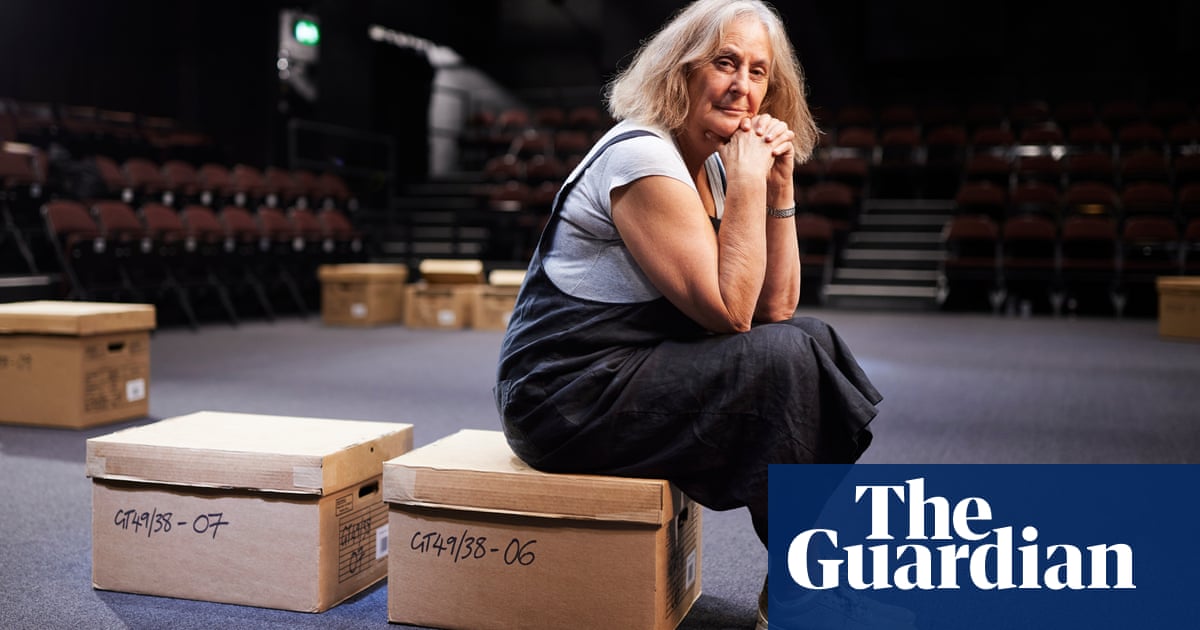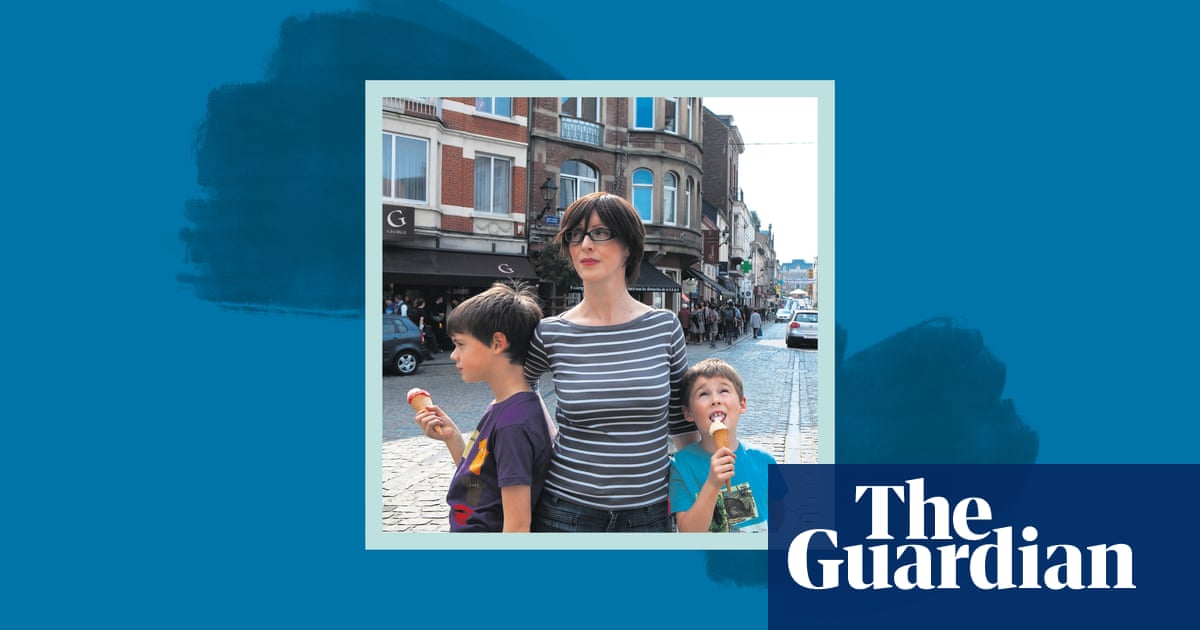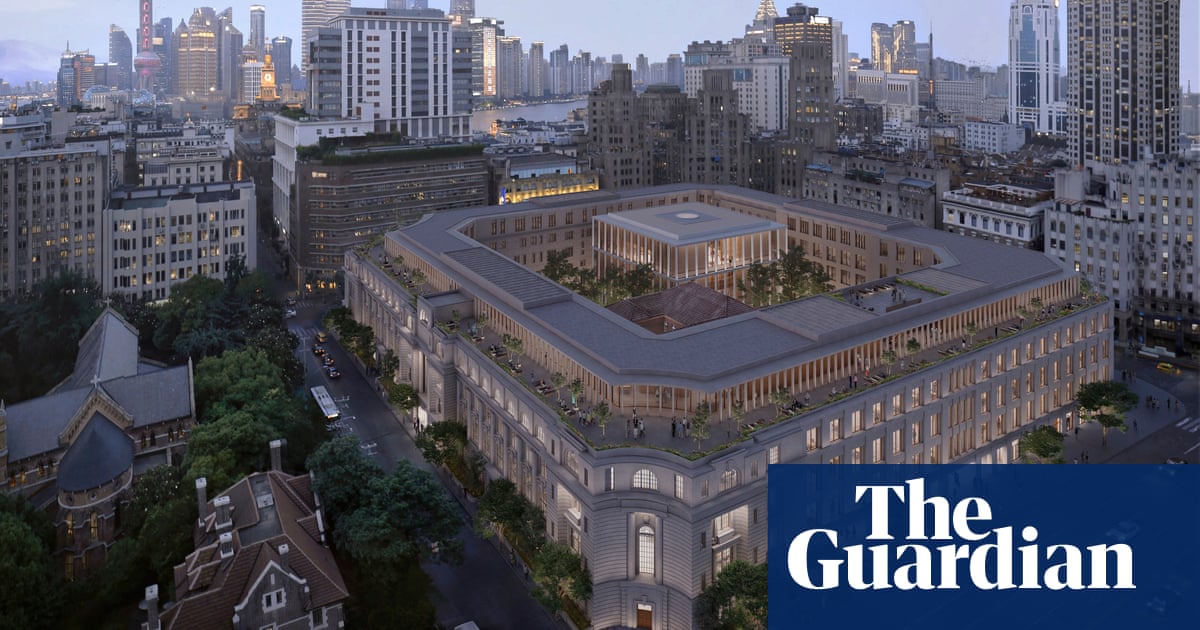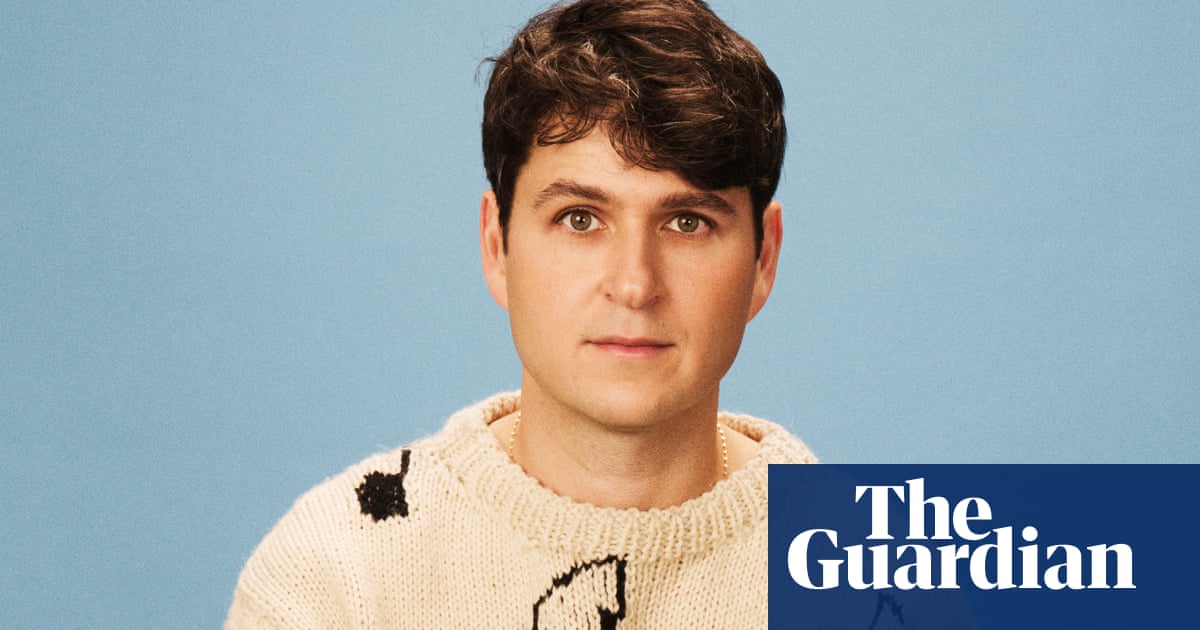
EastEnders was already a national phenomenon by the time Sid Owen auditioned for the role of Ricky Butcher in 1988. The soap had been running for three years and producers wanted a new drama-torn family in Walford. Owen was 16, had left school with no GCSEs and was living in a squat with two of his older brothers in north London. He was desperate for the part, but the cramped flat had no phone so, after his third audition he called his agent every day from a phone box for news. When he got the part it made him a star almost overnight. Famed for his on-screen relationship with Patsy Palmer (who played Bianca Jackson), their soap wedding in 1997 drew in 22 million viewers. He would arrive on set to fans screaming; rarely could he walk down the street without someone yelling “Ricky!”.
The trouble, as he puts it, is that when you are famous, people tend to come out of the woodwork.
Before EastEnders, the last time Owen had had any contact with his father was as a young child, when he went to visit him in prison, where he was serving a life sentence for armed robbery. “I didn’t want to know him,” he says. “I never had any respect for him because of how he was as a father and a husband.”
In the handful of years Owen’s father was around, he would often drink and become aggressive. He beat Owen, his brothers, and mother so badly that the neighbours on their estate could hear their screams. He once dangled Owen’s brother Darren out of a window. In his forthcoming memoir, Owen writes: “We’d run away if we could but it was horrible knowing he’d be beating mum up.” He wet the bed for years after his dad left.
Despite this, not long after Owen appeared on TV, his father sent a message to him via his agents. Owen agreed to meet him in a pub. “I was still intrigued to see what he looked like,” he says. He went to the pub, snuck a look at him, thought: “Thank God I look like my mum!” and left.
His father has since died, but Owen has no regrets about not meeting him. His childhood has been playing on his mind, thanks to his autobiography, From Rags to Ricky. It takes readers through a potted history of his family and early life, from growing up on a housing estate to joining EastEnders.
Born in 1972 in Islington, north London, Owen was the youngest of four brothers and – after his father went to prison – his mother Joan, a barmaid, was left to bring up the family by herself. Owen was four when he became involved with his brothers in their burglaries. He would climb rooftops and shimmy into shops through skylights to open doors for them (earning him the nickname Spider-Man). At other times, they would approach lorry drivers pretending to work at the shops they were delivering to, sign the necessary documentation, then make off with the goods. One Christmas Day was spent comparing all the things they had nicked for one another. (“A competition to see who could come back with the best stuff”, he writes.) Even his mother had stolen the turkey.
“I enjoyed it. It was a buzz going out and petty thieving. If you couldn’t afford it you could still get what you wanted,” says Owen, looking out at the panoramic views of the Thames and City Hall from his rented flat in Tower Hill. His main home is in Kent, but he stays in this flat when visiting his girlfriend. “It was just the complete norm growing up on a council estate in Islington. We didn’t know any different. We were all young. Before you could work, that was what you did.”
Owen adored his mum. He would do Elvis Presley impressions for her and she would invite her friends over to watch him. She was 35 when she died of cervical cancer. Owen was seven.
“My eldest brother took it worst,” he says. “When it happens when you’re younger … that becomes the norm. People felt more sorry for me than I felt for myself. I accepted pretty early on my mum dying,” he says. “I’d learned to get on with it and not be ‘poor me’. Obviously, subconsciously, deep down I was hurting.
“I remember fighting at school because you’d get the piss taken out of you because you didn’t have any parents. So sometimes I would not even tell people, because I wouldn’t want people to judge me.”
Owen moved in with his aunt, but had a difficult relationship with her partner so spent long periods living with the Wooders – the family of his childhood friends. His bereavement, however, also gave him a licence to be disruptive at school.“Once you’ve got no parents, then you’re like: ‘Who the fuck can tell you what to do?’”
He was arrested, aged 10, for stealing, which he says “put the frighteners up me”, but nowhere near enough to keep him from thieving again. Meanwhile his brothers, who wanted to toughen him up, arranged for him to start fighting. “I was small for my age and they thought I’d be too vulnerable if I couldn’t fight.”
“I hated it,” he says. “You get to the point where you’re like: well. I don’t really want to be beat up, smashed to pieces. But that was how we grew up. You had to stand up for yourself.”
Acting saved Owen. He had always loved performing for his mother and was desperate to join Anna Scher’s local drama group near his estate – her theatre school had turned out a number of British TV stars – from Phil Daniels to Pauline Quirke. The group had a policy that let poorer children enrol for 25p a week and he would turn up every week to see if his name had moved up the waiting list.
After an audition organised through the theatre school, the 13-year-old Owen landed a role playing Al Pacino’s on-screen son in Revolution, Hugh Hudson’s 1985 drama about the American war of independence.
Production took him out of school for a year, with shooting on location in King’s Lynn, Dartmoor, Plymouth and Norway. Owen worked alongside Pacino throughout and became close to him, but had no idea “how big he was or who he was, really. I was a young kid. I hadn’t watched the Godfather or Scarface.”
Working with Pacino “was a masterclass every day”, he says. “He was disciplining me, because I was running around a huge film set still thinking I could do what I was doing on the streets of Islington. I’d get told off by the producers and then he’d have a word in my ear.”
Wasn’t having Al Pacino discipline you terrifying? “Well, yeah, but when you work and become close to someone, it’s not like I was pinching myself and going: ‘Fuck me this is Al Pacino.’ It was the everyday norm for me. He was fond of me. He took me under his wing.”
Owen used the money he made from Revolution to put himself into a private school in Westminster. He knew if he didn’t he would slide back into his old ways of fighting and robbing. “As far as they were concerned I was an equal. I was just a kid like them coming from good stock, a privileged background,” he says. Did he feel like an equal? “At times. But then when you’ve got no parents, not really, no. I paid for myself. I certainly didn’t have a silver spoon. I put the spoon in my mouth myself.”
Eventually, he was asked to leave the school because of his disruptive behaviour. He moved to a new school, but left at 16 as he didn’t expect to pass any exams. He was doing well with his acting: after Revolution he landed a role in Crossbow, a Disney series about William Tell. However, he says his aunt and her partner wanted him to find an office job.
“No one ever looked at it as a serious job,” he says. “Where I grew up, the people who did work, they’d either be in the building game or just normal office jobs. There was nobody looking at us going: ‘Oh you’re going to be an architect, you’re gonna study and get a degree’. Even now, it’s not a full-time job. As much as I don’t like to say it, the advice my aunt and uncle gave me – ‘If you think you’re good enough and have passion for it then stick at it and hold out, but always have backup’ – was right.”
After leaving school he carried on trying to make it in acting, but slipped back to his old ways again. Once, he stole a large water dispenser (the kind you see in offices). “I just wheeled it out of a store,” he says, with a grin. “I just put it on a trolley and wheeled it out. No one stopped me.”
Is he surprised he didn’t end up in prison? “Yeah,” he says. “If it weren’t for the acting I would have gone down that route. Because everyone I knew – most of the people I grew up with – had been in prison, died of drugs, or were on the streets.
“When I got EastEnders, that’s what kept me on the straight and narrow. The last thing I needed was to be caught thieving something. And I knew how the press was. I remember Richard [Madeley] got done for nicking something, and it was all over the papers.” (Madeley was later acquitted of all shoplifting charges, after citing lapses of memory for what happened.)
Initially, the fame and attention was intense and surreal. During his first couple of years on the soap, he still had no fixed address. His co-star Nick Berry, who lived near the squat he shared with his brothers, would drive him to the studio in Borehamwood where fans would be waiting. He didn’t know whether anyone he met only wanted to know him because he was famous. “Nothing can prepare you for anything like that,” he says.
During the 90s, Owen struggled with the interest from the tabloid press towards him and co-stars such as Patsy Palmer (to whom he was very close and still talks a lot). He was often out partying, drinking and using cocaine. “When you’re in it, consumed by everything and everyone thinking you’re great and this and that, you get lost and obviously that was part of the reason why I was drinking and stuff like that.
“Looking back,” he adds, “the reason I did it was to block out things that happened in my childhood and dealing with the fame.”
Owen played Ricky for 12 years, leaving EastEnders in 2000 to pursue a brief career in music and go travelling. Away from acting he has appeared on a number of the UK’s biggest reality TV shows, such as Strictly Come Dancing, The Jump and I’m a Celebrity … – anything, he says, that makes him feel scared.
He has also found it hard to let go of Ricky, and has returned to the role a handful of times in the years since (most recently from 2008-12), and was recently asked back but found it clashed with the publication of his book. He has no intention of ever fully stepping away. “I’ve enjoyed playing it and hopefully there’s still plenty more years to come.
“On the one hand, it’s been annoying,” he says, “because I’ve not been able to …” he breaks off to clarify his thoughts. “People go to me: ‘Oh, you should be doing this movie,’ or: ‘You should be doing that,’ or: ‘You’re a good actor,’ and of course I kick myself, but I’ve also made an iconic character on a show that’s been around for 30-odd years, and will probably be around for another 30 years.”
“It is hard being an actor, regardless of whether you’ve been in a top show or not, which can be a bit of a hindrance as well. So, hopefully, things come up. I’m just the same as any other jobbing actor: just waiting for the phone to ring.”
In the meantime, he has a book to promote. His motivation for writing the memoir was to put out a message of hope and encouragement, “that it doesn’t matter where you come from or what your background is there’s always a light at the end of the tunnel”. It is why he chose to end the book very early on in his stint in EastEnders, before the wild parties of the 90s.
We speak again a few days after an interview with the Sun makes the front page with the headline “Coke, girls and booze … my wild EastEnders life”. Owen is not happy.
“I’m trying to put across a good message and then all of a sudden they’re picking up on the things that happened in the 90s. It made me a little bit angry, really. They’re not looking at the fact that I came up from a pretty heavy background, and no parents. Why don’t you knock me while I’m down? It’s disgusting, to be honest with you.”
Owen says he is now “completely clean”, doesn’t smoke and only enjoys the odd glass of red wine. He is content with life, and driven by keeping fit. He says he has worked through a lot of the trauma of his childhood, too, and is proud to speak out about the issues he’s faced.
“The only way you get through things is therapy and talking about it,” he says. “And don’t be ashamed of it; I’m not ashamed of where I come from.”
He still feels the loss of his mother. “You always think about it. Of course I think sometimes: ‘I wish I still had a mother around now.’ You do look at people with their parents and you’ll always get that sense of: ‘Oh, I wish I had that.’”
“We grew up struggling and living day by day and being on benefits,” says Owen, “So I wish my mum was around so that I could have spoiled her. It would have been nice to buy her a house or a car; I’d like to have done that side of it.”
The dedication at the front of his memoir reads simply “For Mum”.




